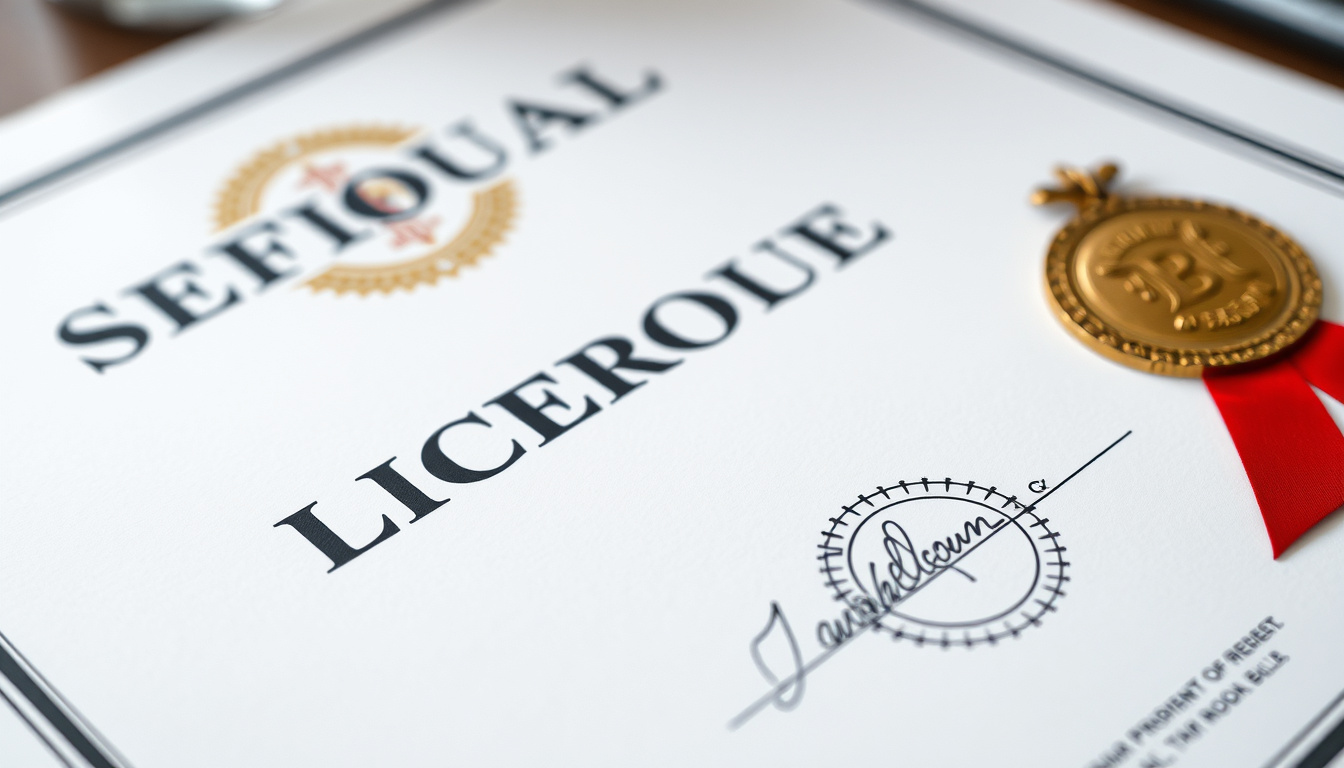If you plan to sell alcohol, you need an alcohol vendor license.
This license gives you permission to sell beer, wine, or spirits.
It also helps your business follow state rules and local laws.
Knowing how to get this license stops legal problems and supports your future success.
In this guide, we list the steps to get an alcohol vendor license.
We also share important details and useful tips.
What Is an Alcohol Vendor License?
An alcohol vendor license is a permit from state or local authorities.
It lets a business sell alcoholic drinks.
This permit makes sure vendors follow laws about age limits, sale hours, and product care.
The rules may change based on the drinks you sell (beer and wine or spirits), where you sell them (eat-in or take-out), and your business location.
This license is required to sell alcohol legally and avoid fines or closures.
Why Is Securing an Alcohol Vendor License Important for Your Business?
You must have an alcohol vendor license for several clear reasons:
• Legal Compliance: Using your business without this license breaks state laws and may lead to fines or loss of permission.
• Enhanced Credibility: Customers and suppliers see licensed vendors as reliable.
• Business Growth: A license lets you expand your drink choices and attract new clients.
• Avoiding Penalties: Sales without a license can cause heavy fines or force you to shut down.
When you know these benefits, you see that starting the licensing process is an important step in the alcohol market.
Step-by-Step Guide: How to Secure an Alcohol Vendor License
The rules and process for a license differ by state and local area.
However, you can follow these general steps:
1. Research Local and State Regulations
Start by reading your jurisdiction’s alcohol rules.
Each state, city, or county may have its own liquor control agency.
These agencies (like Departments of Alcoholic Beverage Control or Liquor Licensing Boards) set the rules.
Visit their website to find:
• The available license types
• Application fees and renewal costs
• The documents you need to show
• The criteria and any restrictions
2. Choose the Appropriate License Type
The common license types include:
• On-Premise License: For bars and restaurants that serve drinks on-site.
• Off-Premise License: For retail or liquor stores where drinks are sold to take away.
• Special Event License: For temporary use at festivals or private events.
Compare your business model with each type to choose the best match.
3. Prepare Required Documentation
Usually, you must provide:
• Proof of business ownership or a lease agreement
• A floor plan of your site
• A criminal background check for owners and key staff
• Personal ID (like a driver’s license or Social Security number)
• Tax records and business registrations
• Payment for any fees
Gather these documents early to keep the process smooth.
4. Complete and Submit the Application
Fill in the application carefully.
You may submit it online or in person.
Make sure to include:
• A clear description of what your business does
• Full disclosure of ownership details
• A correct list of all business premises
Some areas also require a notice to the public or zoning approval before the license is given.
5. Undergo Inspections and Background Checks
After you submit your forms, expect that the licensing agency will:
• Visit your premises to check safety and zoning standards
• Run background checks to confirm your eligibility
• Possibly hold a public hearing so community members can speak
Get your location ready by meeting all health and legal standards.

6. Receive Your License and Maintain Compliance
When the agency approves you, they give you the license.
Keep it visible in your business.
Remember that licensing usually needs an annual renewal.
To stay compliant:
• Follow all liquor laws
• Train your staff to serve responsibly
• Keep detailed sales records
• Renew your license on time
Any rule breaks may lead to fines or the loss of your license.
Important Tips for a Smooth Application Process
The process of getting a license can seem complex.
These tips may help you move ahead without trouble:
• Start Early: Licensing can take weeks or months. Plan ahead.
• Consult Experts: Hire a lawyer or a licensing consultant if needed.
• Check Zoning Laws: Make sure your location meets local alcohol sale rules.
• Attend Public Hearings: Be ready to address community questions if asked.
• Stay Organized: Keep copies of all your paperwork and communications.
Potential Challenges and How to Overcome Them
You may find some common challenges:
• Long Waiting Times: Detailed background checks can slow the process.
• Community Opposition: Neighbors may express concerns during public hearings.
• Complex Rules: Different laws in different areas might confuse you.
To overcome these issues, keep clear communication with officials, seek expert advice, and be patient with the process.
Frequently Asked Questions (FAQ)
1. What is the difference between an alcohol vendor license and a liquor license?
An alcohol vendor license is the permit to sell all kinds of alcoholic beverages.
A liquor license usually means the permit to sell distilled spirits.
The words may mean the same things in some states.
2. How much does it cost to get an alcohol vendor license?
Costs can change with location, type of license, and size of your business.
Fees may range from a few hundred to several thousand dollars.
You should check with your local agency for exact prices and renewal fees.
3. Can I transfer my alcohol vendor license if I sell my business?
You can transfer the license, but only if the licensing authority agrees.
The new owner must meet all rules and fill out a new application.
This may include additional background checks and inspections.
Conclusion
An alcohol vendor license is a key step for any business that wants to sell alcohol.
It shows that your business follows the law and helps you grow.
By studying the process, getting all necessary documents, and keeping to the rules, you can succeed in obtaining your license.
For the most up-to-date information, visit your local Department of Alcoholic Beverage Control or a similar agency.
If needed, get help from a professional to make sure everything goes well.
For more details on alcohol licensing, you might also check the National Alcohol Beverage Control Association’s website.
By following this step-by-step guide, you move closer to getting your alcohol vendor license and setting your business on a path to success.


